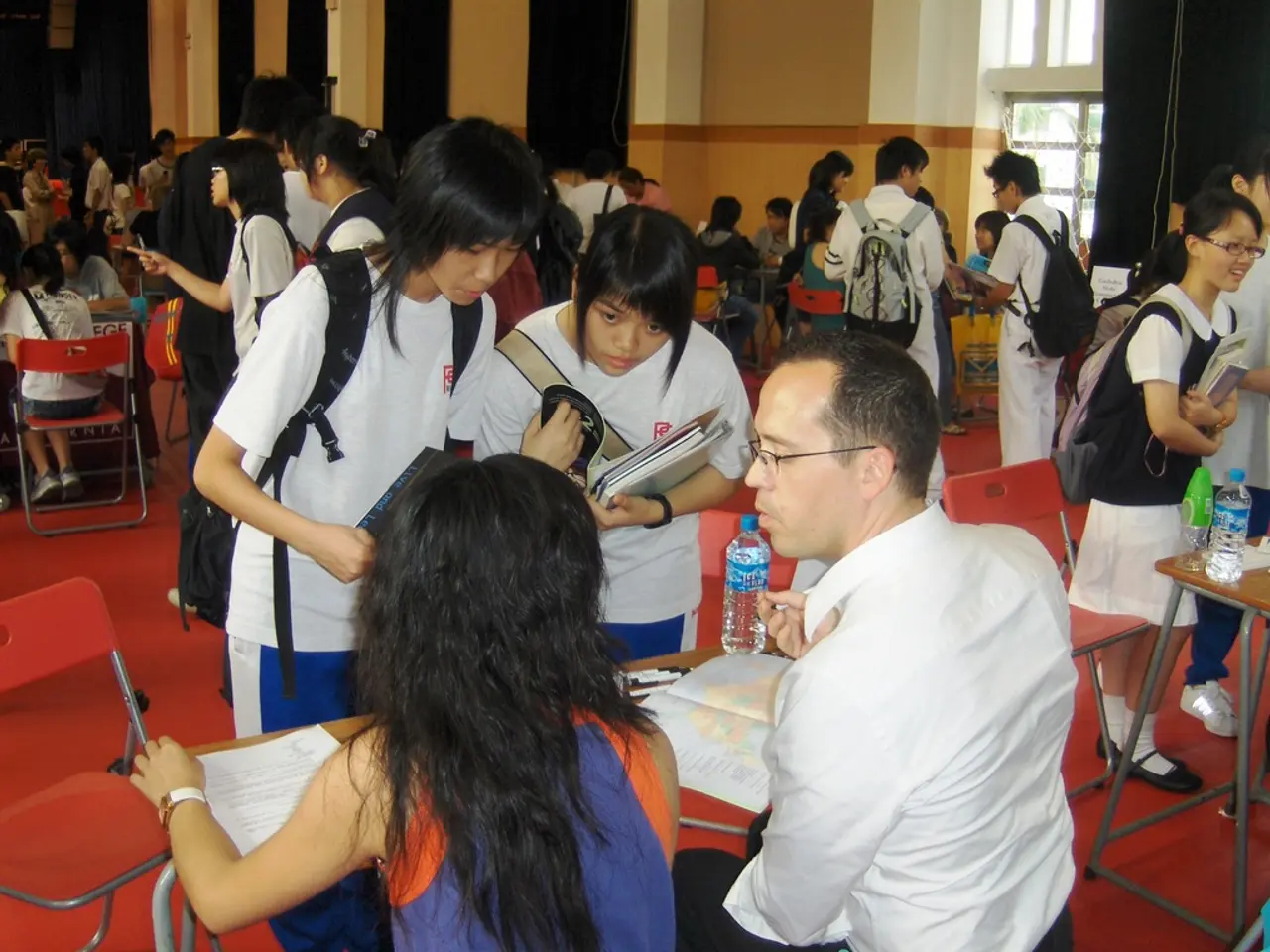Increased incidences of Islamophobia and anti-Turkish sentiments confront Turkish students in Europe.
In recent years, community leaders across Europe have expressed concern that inaction by authorities is exacerbating the problem of mosque attacks and discrimination against Turkish students[1]. This issue is not confined to the streets but extends into academic spaces, with universities in Europe, particularly in countries with significant Turkish populations, becoming places of silent exclusion for Turkish students[2].
The treatment of Turkish students adds psychological pressure and forces them to question their place in environments meant to be inclusive[3]. Anti-Muslim and anti-Turkish sentiment is seeping into both public life and formal institutions across Europe, leading to documented evidence of increasing discrimination against Turkish students, often manifesting as Islamophobia and anti-Turkish sentiment[1][3].
A notable case occurred in Sweden, where a Turkish psychology student, Fatma Zehra Solmaz, was rejected for a research internship through the Erasmus+ program due to Turkey's political stance on Sweden's NATO application[4]. The rejection was ruled discriminatory under Swedish law by the Equality Ombudsman, citing a breach of the principles of equal opportunity in education[4].
The pattern extends beyond individual incidents; it reflects a broader climate of distrust and prejudice against Turkish and Muslim youth in universities across Europe[3]. Students have reported rising Islamophobia and racial discrimination that affect not only their educational advancement but also their integration and social belonging in university communities[3].
Efforts to address these issues require not only legal and policy changes, such as advancing the Equal Treatment Directive, but also cultural and institutional recognition of the problem by educators, university administrations, and civil society to foster genuine inclusion rather than mere rhetoric[1].
The social and academic impacts of this discrimination include reduced access to internships, research opportunities, and academic programs for Turkish students when political issues interfere[1][3]. There is also an erosion of trust in academic institutions promoting equality but allowing silent exclusion[1]. Additionally, Turkish and Muslim students face increased experiences of social isolation and exclusion within university communities[3].
The broader societal implications are significant, as educational discrimination reflects and reinforces exclusionary attitudes in European societies[1][3]. The rise in hate crimes, social hostility, and anti-Muslim propaganda against Turkish communities in Europe, particularly in Germany, is a growing concern[5]. Some mosques in Europe have reduced the visibility of their religious symbols to avoid being targeted again[6].
Cultural traditions, religious practices, or speaking Turkish in public can become a reason for suspicion or judgment for Turks and Muslims in Europe[7]. Many Turks and Muslims still face the label of "outsider," despite decades of living, working, and contributing to European societies[8].
The issue of discrimination against Turkish students and Muslims in Europe is not just about them, but about the kind of Europe that is being built, where inclusion is practiced, not just preached[9]. Acknowledgement of the problem is the first step towards addressing it, followed by concerted efforts from authorities, educators, and civil society to create a more inclusive and equitable Europe for all.
References:
- BBC News
- The Local
- The Guardian
- The Local
- Deutsche Welle
- The Independent
- Al Jazeera
- The Conversation
- Open Democracy
- The Turkish government, along with the parliament in Turkiye, have been vocal about the discrimination faced by Turkish students in Europe, particularly in terms of education and self-development.
- The general news in Europe often covers incidents of crime and justice that target Turkish communities, while political discussions frequently involve the NATO application of Turkiye and the perceived anti-Turkish sentiment within European countries.
- The issue of discrimination against Turkish students in Europe has extended beyond academia, influencing their sense of belonging and psychological well-being, and is often intertwined with wider concerns about Islamophobia and racism in European societies.
- Efforts to address these issues in Europe not only involve policy changes but also require cultural recognition and engagement from educational institutions, government bodies, and civil society to prevent silent exclusion and promote a more inclusive and equitable society for all.




